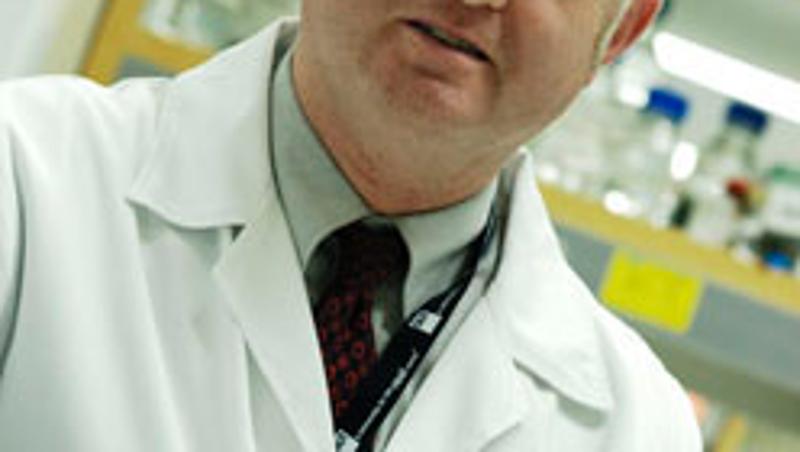First published 28 January 2005
Schizophrenia is a common and severe psychiatric illness that affects one in every 100 people and about a quarter of a million Australians.
But despite its prevalence and inherited nature, scientists have known little about its genetic base - up until now.
Associate Professor Phillip Morris from QUT's Institute of Health and Biomedical Innovation said scientists suspected there were multiple genes that were likely to contribute to schizophrenia - but no-one had been able to identify a major gene to date.
"Our Queensland research team has now found a major gene that is associated with schizophrenia," he said.
"The gene that we have been studying is a type of dopamine receptor gene. One version of this gene results in an overabundance of a specific type of brain receptor, called the D2 dopamine receptor. This overabundance has previously been identified as an important underlying feature of schizophrenia."
Other research team members include Dr Bruce Lawford, a consultant psychiatrist with the RBWH, QUT's Head of Psychology and Counselling, Professor Ross Young, and human geneticist Dr Angela van Daal from QUT's School of Life Sciences. Professor Young and Dr Lawford have been leading research into this gene for over a decade.
"The discovery is exciting given that all currently used medications to treat schizophrenia block or decrease activity of these D2 receptors, which indicates that the D2 receptor is likely to be the key to fully understanding the disease," Dr Lawford said.
"People who are at risk of developing schizophrenia could be diagnosed by using a genetic test for this overactive form of the dopamine receptor gene."
Professor Young said it was also important to minimise exposure to environmental factors known to trigger schizophrenia in people in this genetic subgroup. These factors included stress and substance misuse.
"Psychological therapies may be crucial for these at risk individuals to help them cope more effectively with these environmental risks," he said. "We hope to examine this further in an upcoming study and we believe that this gene will be an important advance in diagnosis."
The study involved genotyping 153 men and women with schizophrenia and comparing them to a control group of 148 people. Those with schizophrenia who took part were inpatients and outpatients in various Brisbane mental health facilities.
The findings will appear in the February issue of the international journal Schizophrenia Research.
Media contacts:
- Mechelle Webb, QUT media, 07 3864 4494
- Assoc Prof Phil Morris, 07 3864 1427, Dr Bruce Lawford, 0407 155 764, or Prof Ross Young, 07 3864 4610.


